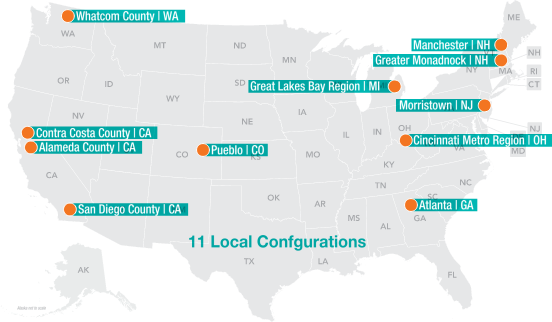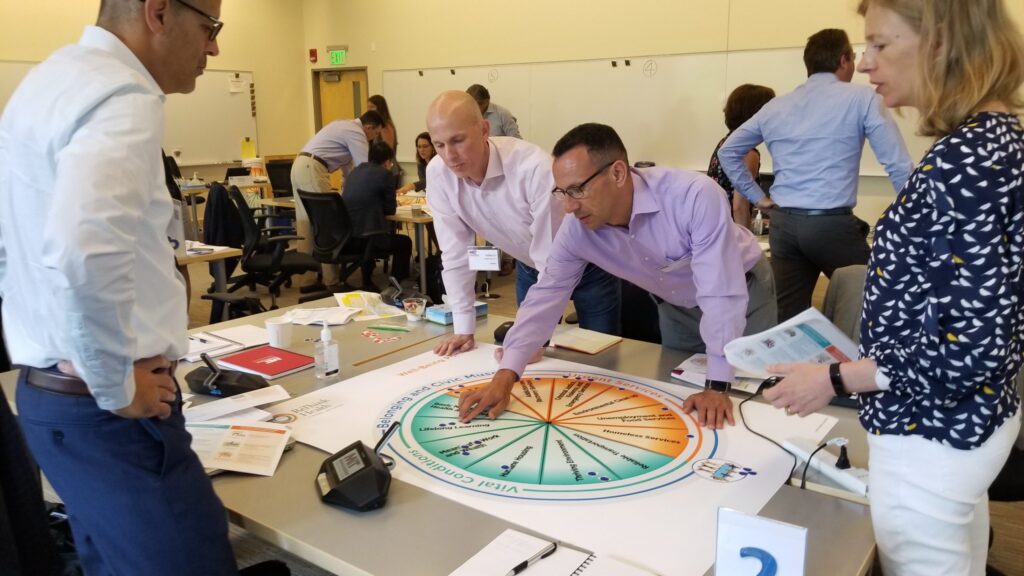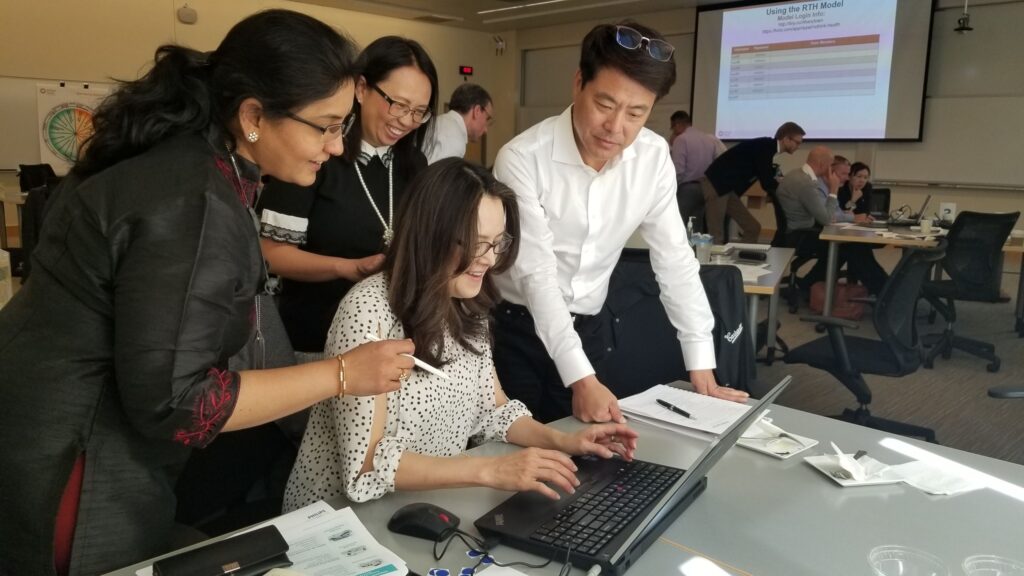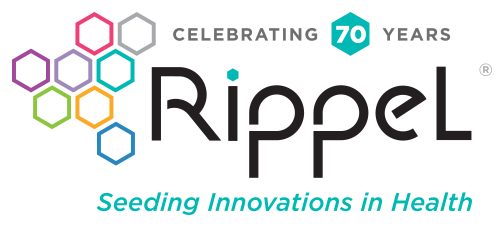
Dynamics Model
How can stewards understand their health ecosystem and test potential ways to transform it together?
The first job of stewards is to understand their health ecosystem. The ReThink Health Dynamics Model can help.
This Model is a regional health ecosystem in a computer. It’s a realistic, yet simplified, tool that stewards anywhere can use to customize and test different strategies for transforming the system that produces health and well-being in their region.
By simulating how a health system responds to changes, it lets stewards see how different strategies might play out. For example, they’ll gain knowledge about which investments will do the most to save lives, reduce costs, improve quality, enhance equity, and boost productivity. With a diverse menu of initiatives and financing options, everyone can test their own ideas and track results across scores of measures. This helps foster alignment about which idea will achieve the results they want.
The model has been used in regions across the country to:
-

Align quickly around sound strategies
-

Explore impacts of sustainable funding
-

Shift strategies and funding in more effective directions


Easy to use to collaborate
-
Also...
-
100+ Strategy Labs
-
5,000+ Leaders
-
20+ Universities
-
Finalist, Social Impact Exchange Business Competition


Evidence-based
View Our Frequently Asked Questions
-
...get stuck or want helpful advice
Contact Rebecca Niles -
...want to configure it with local data
Contact Bobby Milstien
- > Overview (12 pages)
- > Intervention Options
- > Rankings
- > Geographical Focus
- > Behavioral Logic
- > Elements


